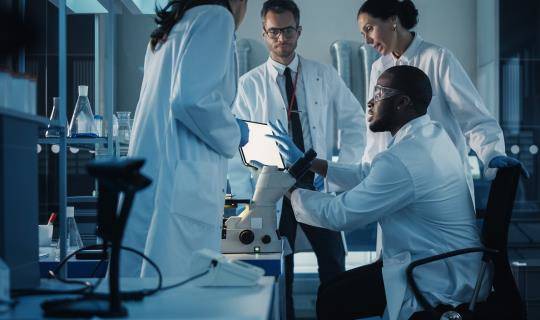5 questions to ask before choosing a logistics partner
By World Courier
Makes sure you ask your logistics partner these five questions

Our most recent article detailed how a logistics partner carries out carefully designed projects to assure success.
When the shipment is an ultrasensitive cell or gene therapy, or the bio-materials used to manufacture personalized medicines, then the stakes can be much higher than with everyday deliveries. There is no room for error –– late arrival, temperature variation, sometimes even package tilt –– can damage the samples and ultimately risk the health of the patient and the outcome of the trial.
This post explores the five qualities essential in your cell and gene therapy logistics partner.
1. Experience
Global, on-the-ground experience shows up in little details that can make the difference between on-time delivery and catastrophic delay.
This includes knowing when to drive a shipment to a different country or airport for faster check-in, better flight connections, shipment pre-clearance, or an earlier arrival at destination.
It also includes experience with specific airlines in specific locations. Knowing when to choose an alternate flight from a preferred carrier or a pick-up time that allows greater flexibility.
Question: Ask your logistics partner about their experience in specific countries, with different airlines, and how they deal with unforeseen challenges.
2. Reputation
Security concerns around the world cause long queues and heavy use of x-ray technologies to screen both passengers and cargo.
Delicate therapeutic shipments, however, cannot withstand the x-ray process extended waiting times.
Only a proven logistics provider with “known shipper” status, impeccable credentials, and a stellar reputation can negotiate exceptions with airline, security, and Customs officials.
Question: Ask your logistics partners how they overcome the challenges associated with crossing international borders. What is their experience with Customs in the countries your shipments will leave and arrive? Do they know each country’s permitting regulations?
3. Global GxP
Compliance with standard “good practices” across industries starts with written standard operating procedures (SOPs).
But how are those SOPs enforced in studies that span multiple locations on multiple continents?
Internal process, performance review, and record-keeping controls are key. As are dedicated team members whose skills, knowledge and qualifications were gained through experience and training.
Question: Ask your logistics provider how they create and enforce SOPs. How do they assure those SOPs are enforced globally? How do they assure that all team members involved in your project are educated and kept up to date on changes to SOPs?
4. Knowledge
Transporting cell and gene therapy bio-materials across national boundaries is a tricky business.
Beyond national permitting, some local or regional authorities have their own requirements.
For example, many countries do not allow the exporting of patient samples. Local laws affect the importation of a biological sample from outside the EU to Italy. Every shipment to Tunisia requires a permit, but Algeria grants longer-term authorization — if you pre-register with Customs before you apply.
Your logistics provider needs to know the details.
Question: Ask your logistics provider how they assure your bio-materials reach their foreign destination on time and in perfect condition. What are the specific regulations for each study country and local site. Do they know? Do they have people on the ground who can handle the permitting in the local language?
5. Global Reach
Shipments must be handled with the same skill, knowledge and urgency, regardless of their destination. To assure that they are, your logistics partner has to work with local operatives, speaking the local language, trained to the same standards in every study site location. Your team abroad must understand that there are patients waiting for your medicines – in some cases, those therapies could save a life.
Question: Ask your logistics provider whether they have experience working with local providers in the countries where your shipments need to arrive. What kinds of logistics team do they have on the ground? Regional staff? Known contractors with experience handling gene and cell therapies or bio-materials?
To learn more about how to choose a logistics partner capable of delivering your study’s delicate therapies on time, in pristine condition, please download our e-book.


